Nigel Murch was a fiery fast bowler who commanded attention wherever he played
It’s 40 years since the former Victorian quickie crossed from District to Sub-District cricket. Four decades on, his exploits at St Kilda and Malvern are still talked about.
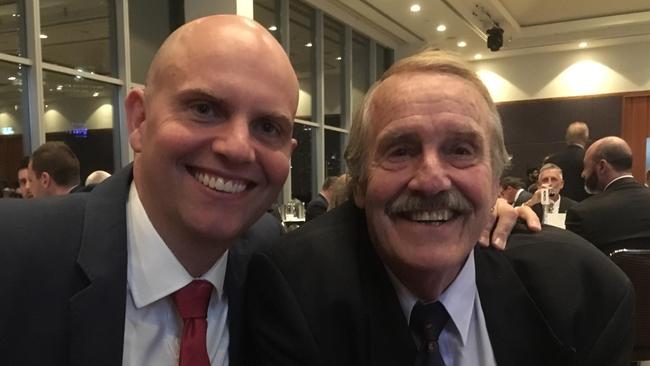
Inner South
Don't miss out on the headlines from Inner South. Followed categories will be added to My News.
It was the 2018-19 Sub-District awards night, and Caulfield’s Jacob Thorne was on stage again as the winner of the Val Holten Medal.
Awards host Peter Lazar was interviewing Thorne, and asked him why he continued to play Subbies cricket.
The first answer came not from Thorne, but the Malvern table, situated close to the presentation area.
“For the money.’’
There were guffaws. Malvern president David “Doc’’ Priddle winced.
The quip came from Malvern great Nigel Murch, and it’s fair to say he looked rather pleased with himself.
Priddle was less enamoured with the comment, hustling over to apologise to Thorne as he stepped off stage, his fourth consecutive medal victory complete.
There was no harm done. It was all a bit of fun.
And everyone agreed it was great to see Murch, 75, at the dinner, as a two-time winner of the award (when it was known as the Hatch Medal) and as one of Victorian cricket’s most vibrant and colourful characters.
He has battled rough health for a few years, specifically what he terms a “stretched’’ heart.
But he had a sparkle in his eye and mischief on his mind as he took in the Subbies presentation, son James at his side and fellow former first-class cricketers Peter Bedford and David Broad on the Malvern table.
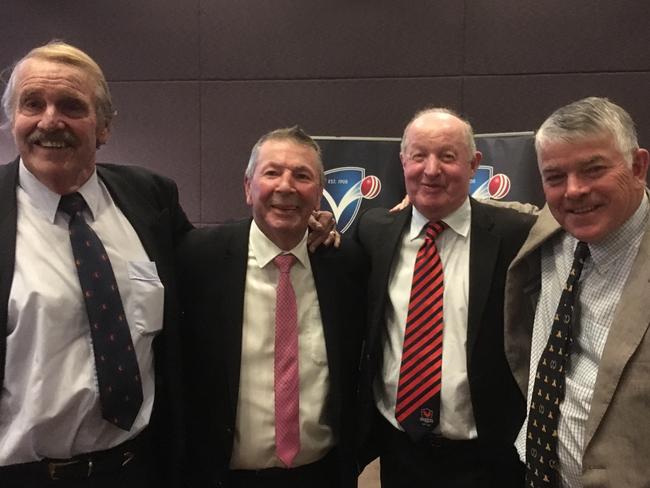
Rodney Marsh was guest speaker. After his talk he drifted over to the Malvern group and posed for a photograph with Murch, Bedford and Broad.
It got people talking, and, being a Subbies night, they got to talking about Murch’s prodigious exploits with the Roosters.
He joined the club from St Kilda in 1979-80 and went on to play 144 matches.
In his first season he was part of a premiership team, making sure of it by taking six wickets and a hat-trick against Brighton.
The right-arm paceman won the Hatch in 1980-81 and 1981-82 (but he didn’t win it in 1983-84 when he captured 61 wickets at 11.16 and hit 434 runs at 43.40!).
His record was superb. In 10 completed seasons he took 40 wickets or more on eight occasions, finishing with 478 at 14.34, as well as 2769 runs at 21.46. Murch captained the Roosters for six seasons and was club champion eight times, regularly scoring more than 1000 points on the calculation of one per run and 10 per wicket (only Murch and the late and great Ron Howland touched those heights).
“In the view of most he stands without peer as Malvern’s premier quick,’’ Priddle noted.
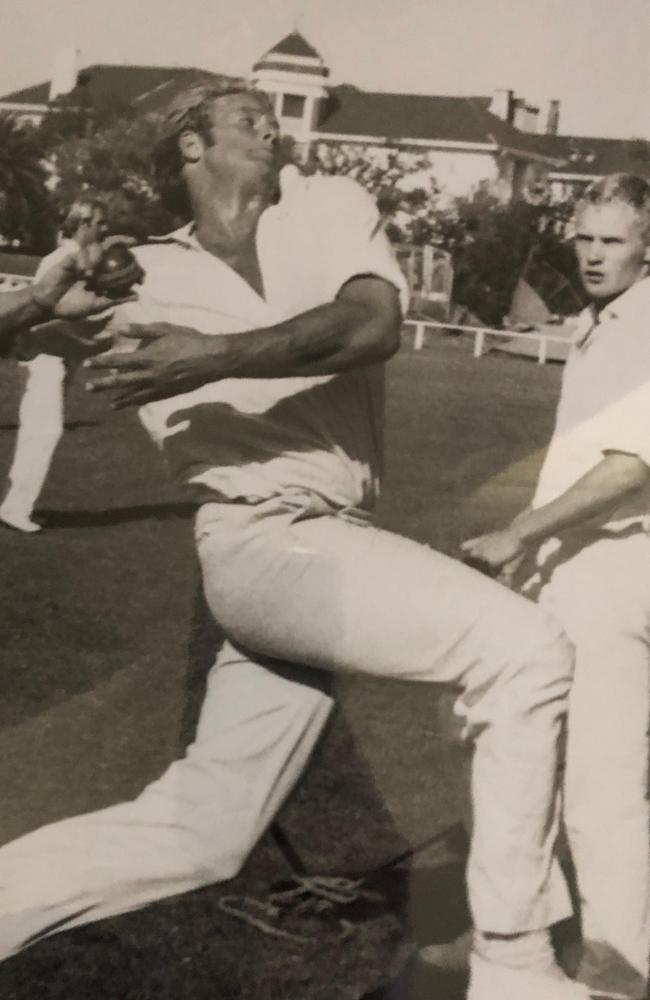
And along the way he was never less than entertaining. Once clocked at 94mph, Murch was a fast and often fiery bowler.
“The infamous,’’ Malvern legend Tony Beer laughed at mention of Murch’s name.
“He used to snarl a bit. He was great on the talking side of it. He would intimidate a lot of batsmen. He was intriguing to play with. His reputation preceded him. And he’s kept it up ever since.’’
At the Subbies dinner former Moorabbin coach Michael Moss had listeners dissolving into laughter as he recalled a time Murch clashed with an umpire.
The umpire was keen to make his point but, from the top of his bowling mark, Murch dismissed him with the words, “Sorry, I can’t hear you’’.
Live your best Melbourne life with a Leader Community News subscription
This went on for a bit until the umpire asked him to get on with the game. As Murch got close to the wicket, the umpire threw his arm out, stopped Murch in his tracks and said: “Can you hear me now, Nigel?’’
Priddle called him a “passionate, hard-nosed cricketer who never gave an inch’’.
“But he was always the first to shake a guy’s hand when he made a good ton and have a beer with him after play. As I recollect more and more he brought some virtues to the game that are completely positive,’’ Priddle said.
“That’s reasonable to suggest,’’ Murch said at his Beaumaris home last Tuesday when asked if he’d clashed with a few batsmen.
“When I went into District cricket all of the bowlers used to yap at the batsmen. All of them. I’d just finished at Geelong Grammar. Well, you couldn’t do it at Geelong Grammar. You’d be given a detention!’’
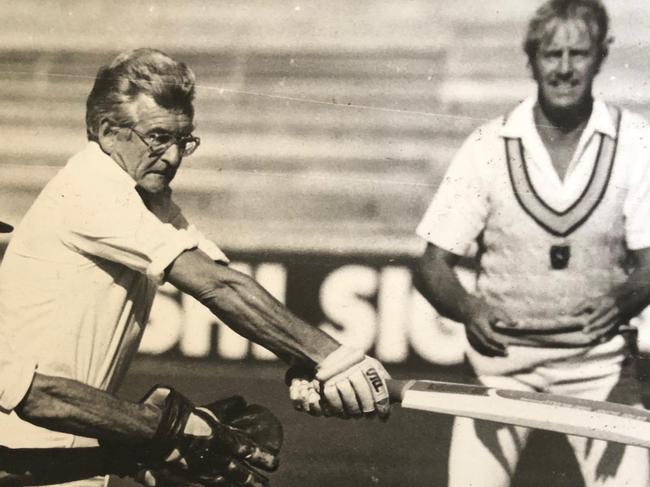
He made three points: he never brought up race, religion or colour with an opponent, he never gave a batsman a “send-off’’ and he would always be up for a drink and a chat after play.
Murch was an outstanding VSDCA player, but by then his chief virtue was his accuracy and his “sharpish’’ pace.
His best cricket came in his prime years at St Kilda.
Raised in Port Fairy and schooled at Geelong Grammar, Murch came to Melbourne to play Under 19s football for Hawthorn.
In his first match he dislocated a knee and was told by a doctor that in light of the injury he would be best to play cricket.
He joined Hawthorn East Melbourne, which was strong in fast bowling.
Murch played one match but was dropped to the seconds when John Salvado and John Salmon returned from the state side.
St Kilda captain Bill O’Halloran asked if he was interested in joining the Saints in 1964-65. He was and he did, soaking up the knowledge of prolific wickettakers Peter Hosking and Norm Lynch.
Murch was quick, and he rose quickly, being selected for a Victorian debut in 1966-67.
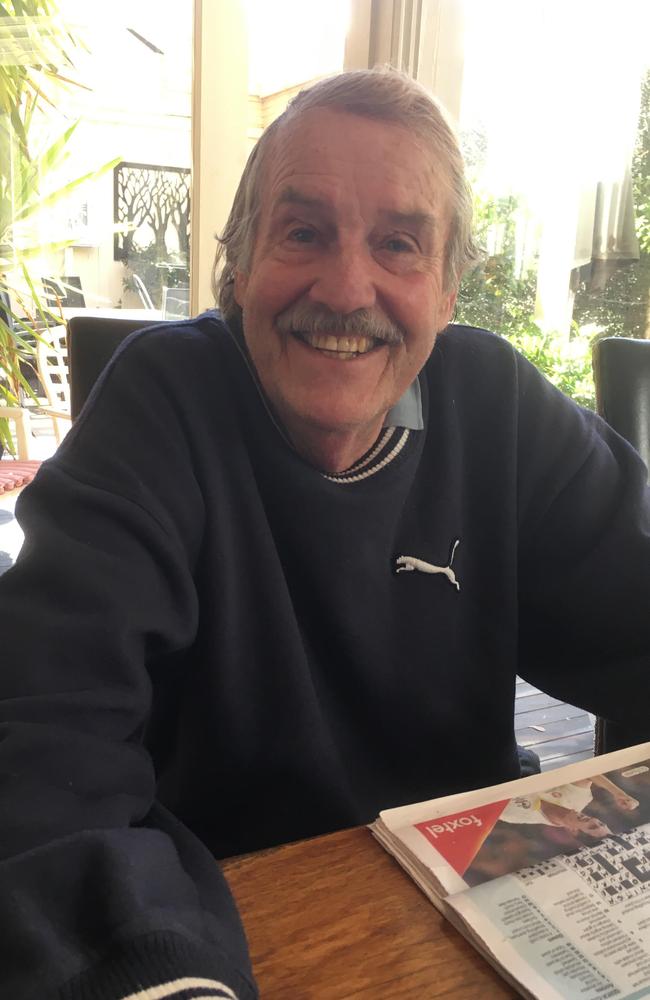
Playing against NSW at the SCG, he was pulled aside in the changerooms by Sir Donald Bradman, who told him he had pace but needed to “think more about line and length, off stump and just outside off-stump’’.
Murch flapped at the fringes of the first-class scene. His nine matches were spread over four seasons and he was done by 1969-70. Why didn’t he play more?
“Because I didn’t get picked!’’ he said.
His long-time teammate at St Kilda, Geoff Tamblyn, said Murch was stiff.
He said some of the Victorian players apparently thought the young Saint wasn’t quite good enough.
“Les Favell got to him at the MCG one day. Nigel kept bowling short to him, and Favell kept whacking him,’’ Tamblyn said. “But I thought he was hard done by with selection, to be totally honest.’’
The great Frank Tyson fitted up Murch for a stint at Northamptonshire, where he played one match in 1968. At the same time he linked up with the International Cavaliers, playing alongside Sir Garfield Sobers. “Best cricketer I’ve seen,’’ he said.
Murch thought there wasn’t too much difference between District and Shield cricket, noting the Victorian club competition then had 12 teams, most of them strong.
Overlooked by the state selectors, he played much fine cricket with the Saints, taking stacks of wickets and chipping in with well-hit runs in the lower-order.
He was club champion six times – 1967-68, 1968-69, 1973-74, 1974-75, 1975-76 and 1977-78 – and captained the club.
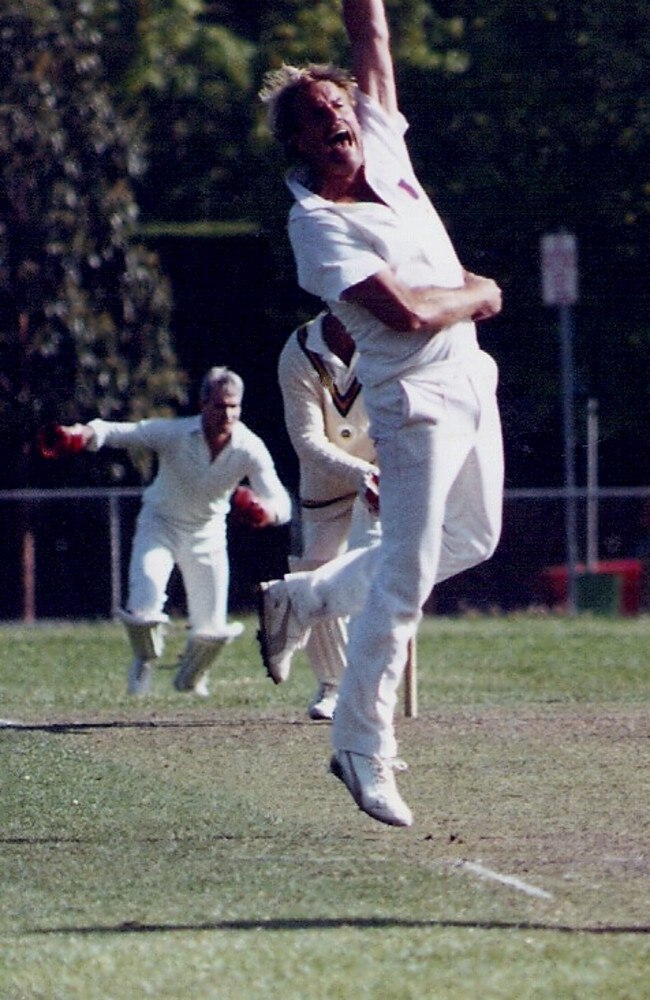
His stocky little mate behind the stumps, Tamblyn, considered him St Kilda’s best player during that era and is adamant he should have won a Ryder Medal. He was runner-up in 1974-75, behind Bomber John Grant.
“Mighty player, one of the best fast bowlers going around, and a very tough competitor,’’ Tamblyn said.
“He could be fiery. Some of the players didn’t like his style but that’s just the way he was.’’
15TH SUBBIES TON FOR RICKY DAMIANO
Shaun Graf played on the Mornington Peninsula before joining the Saints in the mid-1970s as a prospect with bat and ball.
Murch was then the club captain and he ran training like a drill-sergeant, Graf said, recalling lung-burning runs around the lake and up and down the steps of the Junction Oval grandstands, the players holding bats above their heads.
The strapping Graf got through them. And, placed in the firsts net, he got through Murch bowling a lot of short stuff off 18 yards.
“He’d try to terrorise everyone – especially a new player who might be a chance to take his spot!’’ he said.
“He was hard. He instilled that aggression and other types of behaviour in me. I certainly learnt a lot from him in relation to being highly competitive. And that’s what he was, a very competitive rooster who enjoyed winning. He could be a hothead, a bit hard to handle.’’
Graf said Murch was an intimidating figure, strong and athletic, his blonde hair bobbing as he tore in off his long run.
“He was fiery, he was lively, had that tearaway run-up, he probably looked a bit quicker than what he was,’’ he said.

Murch left St Kilda in a bit of a huff. English batsman Graham Barlow had played for the club and said he would return only if he was made captain.
Murch said Saints officials “started to contemplate it’’. He didn’t like the idea of giving up the skippership to the overseas player.
“I’d given them good service and they were still contemplating Graham Barlow because he could bat … I didn’t think that was being too bloody loyal,’’ he said. “So I went to Malvern. And I never regretted it one bit.’’
Tamblyn took over as captain and the Saints lost the grand final to Footscray. “Nigel keeps telling me had we had him, we would have won the premiership,’’ Tamblyn said.
Murch later returned to St Kilda as president, guiding it through some tough times in the 1990s.
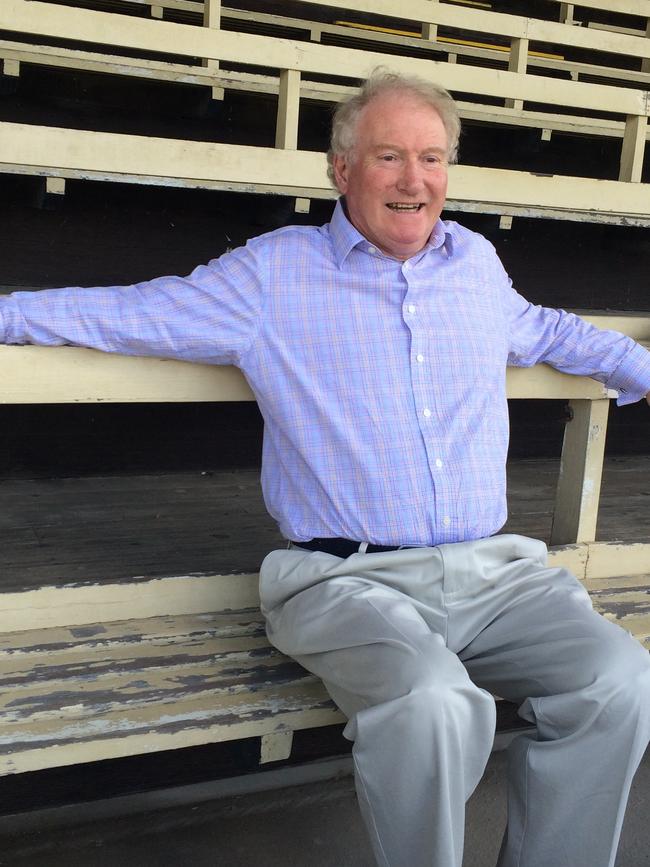
To his great pleasure, James followed him into the First XI ranks, playing in a premiership. He was neither as fast nor fiery as his father, but his average over 65 First XI matches – 21.67 – wasn’t to be sniffed at.
“That’s one of the things I’m most proud of, he’s got his name on the bowling average at St Kilda with mine,’’ Murch said. “He could bowl a bit.’’
And so could his old man, SNC “Nigel’’ Murch, the combustible quick of Victorian cricket.
